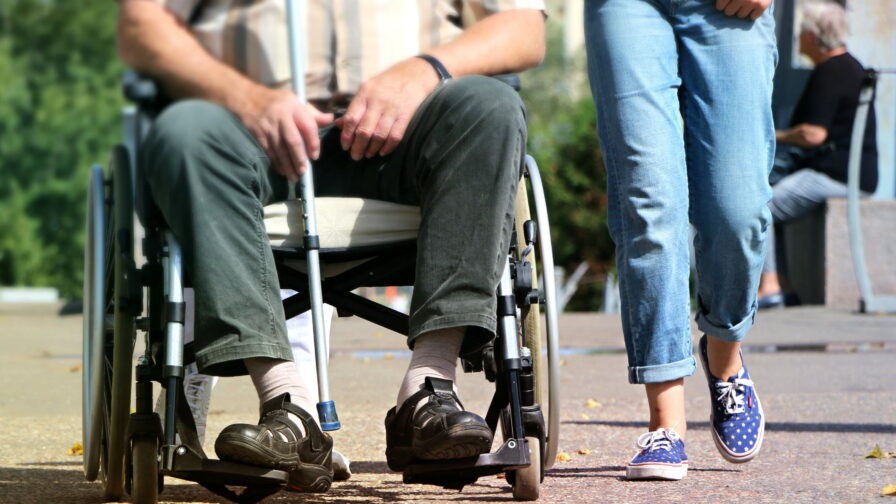Disabled people were at least twice as likely to die by contracting Covid-19, compared to non-disabled people, during the first nine months of the pandemic last year.
The north of England was hit particularly hard during the Covid crisis, where across the whole population of the North the total number of recorded cases per 100,000 was 20 percent higher than the rest of England as a whole. The North also has a higher level of disability, with 21 per cent of working age people classified as disabled in 2018, compared to 19 percent across England.
These are just some of the shocking statistics of the disproportionate impact of the pandemic on disabled people, released in a research report by the IPPR North think tank based in Manchester. The wide-ranging report covers the effects of the pandemic in the fields of health, work, welfare and education.
Highlighting the fact that disabled people in the region were at a disadvantage before the pandemic due to regional inequalities baked into the UK’s economic strategy, IPPR North also points to the austerity driven cuts to public services that left disabled people in a vulnerable position before Covid-19 enveloped the country.
A prime example presented of the devastating effects of these cuts is the reduced funds available to teach children with special educational needs. In 2013/14 the funding per pupil needing the highest level of special educational needs was £25,409, in 2020 that figure had dropped 29 per cent to £17,737.
These austerity induced public service cuts were then exacerbated during the pandemic when councils enacted Care Act easements, which gave them the right to not carry out review and assessment processes linked to care support, to allow them to manage increased demand and staff absence.
The IPPR North report, called Time To Act, also points out the excessive impact on disabled people’s health across Great Britain, with 35 percent reporting that the Covid pandemic was negatively affecting their health, compared to just 18 per cent of the whole population.
In the field of employment, always a tricky one for disabled people to navigate, the pandemic has increased the difficulties faced. A survey presented shows that 42 percent of employers were discouraged from hiring disabled people, due to concerns about supporting them adequately during Covid-19. Across the North disabled people were less likely to be employed, at 51 per cent, compared to disabled people in England as a whole, at 55 per cent. For non-disabled people the respective rates were similar at 81 per cent in the North and 82 percent across the whole of England.
A lot of the data referred to by IPPR North on the inequities faced by disabled people comes from the Office of National Statistics (ONS), and so is information the government is aware of and may have been referred to in the creation of the National Disability Strategy (NDS) in July, launched by prime minister Boris Johnson with assertions that the document was a “down payment” on his promise to “build back better and fairer, for all our disabled people”.
The NDS was announced by government with £1.6bn of funding attached to it. Research by the Disability News Service shows that more than a billion pounds of that funding had already been announced in last year’s spending review, and that the only new amount of confirmed funding for the NDS was £4.13 million, which, when divided between the 14.1 million disabled people in the UK, amounts to 29.5p per person.
In its concluding remarks the IPPR North report states:
“If the UK government is serious about ‘levelling up’, it needs to provide fair access to opportunity for everyone. It is clear that this isn’t currently the case for disabled people. This can be said for a range of outcomes including health, work, welfare and education. Fundamentally, good outcomes across these policy areas are crucial for ensuring that everyone in the North has the chance to achieve the good life.”
Time to act: Understanding the impact of Covid-19 on disabled people in the north of England – full report – click here
Time to act – easy read report – click here
The Meteor is a media co-operative, if you would like to find out more about joining and supporting our work – click here.
Sign up to The Meteor mailing list – click here.
Featured image: Piqsels.com


Leave a Reply